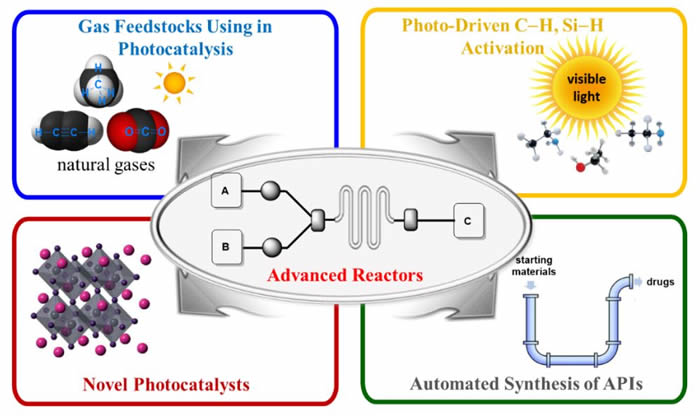WU Jie
Associate Professor, Assistant Head (M.Sc. Programme and Enterprise), Dean's Chair Professor (2023-2026)
Postdoctoral, Massachusetts Institute of Technology, 2012-2015; Ph.D, Boston University, 2012; B.Sc., Beijing Normal University, 2006.
Contact Information:
Office: S5-05-09
Tel: (65)-6516-1020
Fax: (65)-6779-1691
Email: chmjie@nus.edu.sg
Research
Recognition and Achievements
- Emerging Investigators in Flow Chemistry, 2023
- Tokyo Chemical Industry-SNIC Industry Award in Synthetic Chemistry, 2021
- Young Researcher Award, NUS, 2021
- Young Scientist Award, Faculty of Science, NUS, 2020
- The Distinguished Lectureship Award, The CSJ Asian International Symposium, The Chemical Society of Japan, 2020
- Thieme Chemistry Journal Award, 2019
- Young Chemist Award, Department of Chemistry, 2018
- Asian Core Program Lectureship Award, 2017-2023
Research Interests
The research program in WU group have broadly and deeply involved in two research fields of organic synthesis, including photocatalysis and flow automated synthesis. Our long-term goal is to advance otherwise difficult or ineffective chemical reactions using advanced flow techniques, as well as to develop new chemical strategies to aid the automated multistep synthesis. The research program in my lab can be divided into five parts: 1) Development of engineered flow reactors. A centerpiece of research in my group relies on the unique advantages provided by micro-tubing reactors. 2) Exploring new fundamental reactions that directly transform natural gas feedstocks into value-added fine chemicals by harvesting visible-light as energy input. This project takes advantage of the super efficiency of biphasic gas/liquid reactions and enhanced photo-irradiation in micro-tubing reactors. 3) Development of photo-mediated hydrogen atom transfer strategies for C-H, Si-H, and B-H functionalization to convert readily available alkanes, hydrosilanes, and boranes into valuable products in an atom- and step-economic fashion. 4) Development of novel heterogeneous photocatalysts. This project aims to take advantage of the heterogeneous catalysis in flow reactors for sustainable chemical manufacturing. 5) Development of end-to-end automated platform for the synthesis of organic molecules. Our group’s research is truly multidisciplinary including both organic chemistry and engineering aspects, which provides opportunities to learn areas of research outside of traditional organic synthesis. Students in my group will get trained on photocatalysis, continuous-flow synthesis, multistep synthesis, and green chemistry. They will build in-depth chemistry background and strong problem-solving techniques. The advantages of continuous flow processing are increasingly being appreciated both by industry and academia, and students expertise in this field will find enormous job opportunities.

Recent Highlight
- Invention of advanced flow reactors including high-speed circulation flow reactors and stop-flow micro-tubing reactors
- Fine chemical synthesis using natural gas as feedstocks under visible-light irradiation
- Unravel the unique property of neutral eosin Y, which can function effectively as a direct HAT photocatalyst for C-H and Si-H functionalizations
- Development of novel technology for end-to-end automated synthesis of functionalized organic molecules
Representative Publications
- Tian, D.; Tan, T. W.; Hai, R. T. K.; Wang, G.; Mohamed, F. P.; Yu, Z.; Ang, H. T.; Xu, W.; Tan, Q. W.; Ng, P. S.; Low, C. H.; Liu, B.; Zekui, P. Q.; Joy, J. K.; Cherian, J.; Mak, F.; Wu, J. Button-Push On-Demand Synthesis for Rapid Optimization of Antiviral Peptidomimetics. J. Am. Chem. Soc. 2024, 146 (6), 31321–31329.
- Zeng, H.; Yin, R.; Zhao, Y.; Ma, J.; Wu, J. Modular Alkene Synthesis from Carboxylic Acids, Alcohols, and Alkanes via Integrated Photocatalysis. Nat. Chem. 2024, 16, 1822–1830.
- Liu, T.; Li, T.; Tea, Z. Y.; Wang, C.; Shen, T.; Lei, Z.; Chen, X.; Zhang, W.; Wu, J. Modular Assembly of Arenes, Ethylene, and Heteroarenes for the Synthesis of 1,2-Arylheteroaryl Ethanes. Nat. Chem. 2024, 16, 1705–1714.
- Liu, C.; Song, L.; Liu, Q.; Chen, W.; Xu, J.; Wang, M.; Zhang, Y.; Tan, T. W.; Lei, Z.; Cheng, L.; Khan, S. A.; Wu, J. High-Speed Circulation Microflow Synthesis Facilitating Practical Large-Scale Heterogeneous Photocatalysis. Org. Process Res. Dev. 2024, 28, 1964–1970.
- Fan, X.; Zhang, M.; Gao, Y.; Zhou, Q.; Zhang, Y.; Yu, J.; Xu, W.; Yan, J.; Liu, H.; Lei, Z.; Ter, Y. C.; Chanmungkalakul, S.; Lum, Y.; Liu, X.; Cui, G.; Wu, J. Stepwise On-Demand Functionalization of Multihydrosilanes Enabled by a Hydrogen-Atom-Transfer Photocatalyst Based on Eosin Y. Nat. Chem. 2023, 15, 666–676.
- Qi, J.; Xu, J.; Ang, H. T.; Wang, B.; Gupta, N.; Dubbaka, S.; O’Neill, P.; Mao, X.; Lum, Y.; Wu, J. Electrophotochemical Synthesis Facilitated Trifluoromethylation of Arenes Using Trifluoroacetic Acid. J. Am. Chem. Soc. 2023, 145, 24965–24971.
- Tang, H.; Zhang, M.; Zhang, Y.; Luo, P.; Ravelli, D.; Wu, J. Direct Synthesis of Thioesters from Feedstock Chemicals and Elemental Sulfur. J. Am. Chem. Soc. 2023, 145, 5846–5854.
- Cao, H.; Kong, D.; Yang, L.; Chanmungkalakul, S.; Liu, T.; Piper, J. L.; Peng, Z.; Gao, L.; Liu, X.; Hong, X.; Wu, J. Brønsted Acid-Enhanced Direct Hydrogen Atom Transfer Photocatalysis to Enable Selective Late-Stage Functionalization of Unactivated C(sp³)–H Bonds. Nat. Synth. 2022, 1, 794–803.
- Liu, C.; Xie, J.; Wu, W.; Wang, M.; Chen, W.; Idres, S. B.; Rong, J.; Deng, L.-W.; Khan, S. A.; Wu, J. Automated Synthesis of Prexasertib and Derivatives Enabled by Continuous-Flow Solid-Phase Synthesis. Nat. Chem. 2021, 13, 541–457.
- Cao, H.; Tang, X.; Tang, H.; Yuan, Y.; Wu, J. Photoinduced Intermolecular Hydrogen Atom Transfer Reactions in Organic Synthesis. Chem. Catal. 2021, 1, 523–598.
